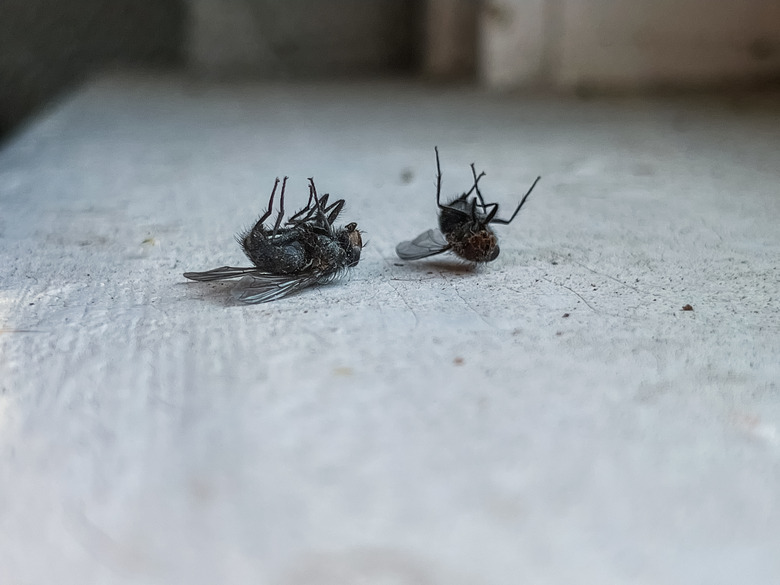What Would Cause Dead Flies In My Basement?
We may receive a commission on purchases made from links.
If all you're finding in the spring are the remains of dead flies in your basement, count yourself lucky because where those flies can invade your space, so too can wasps and other overwintering bugs you'd rather not discover. More often than not, these flies you find aren't typical houseflies but rather their more harmless relation: the cluster fly.
What Is a Cluster Fly?
What Is a Cluster Fly?
You typically wouldn't get houseflies in the basement unless they had a food source, like a carcass, so it's more likely that the basement flies you're seeing are cluster flies (Pollenia rudis), which look similar but have no interest in your indoor food sources. Upon closer inspection, you'll see cluster flies are grayish, not black, and they sport a striped abdomen with yellow hair over their thorax. They can grow a half-inch long, and when they're at rest, their wings seem closer to their body than a housefly's do.
If you have cluster flies, you might want to take up fishing since your property seems to have a healthy earthworm population. The cluster flies are the clue because their larvae are parasites of the earthworm. Cluster flies are completely harmless and do not spread diseases like houseflies do, and the only reason they've entered your home is to seek warmth during the winter like wasps and ladybugs might.
Harmless But Still a Problem
Harmless But Still a Problem
Face it — it's a disgusting mess to encounter when you find a mass of dead flies in the basement. Even worse, it's a feeding frenzy for other would-be invaders. Cleaning them up isn't your problem — preventing them is. To clean up, be really thorough and simply vacuum all gaps and corners so you don't have any fly carcasses to attract ants or roaches.
Like most bug problems, the obvious first steps include things like putting screens on your windows and sealing every perimeter gap and crack you can find, especially around doors and windows.
Sticky fly traps and bug zappers work against cluster flies too, both indoors and out. Outdoors, though, is where a significant part of your efforts should go because that's where the problem really is, and it's where you can stop the problem before it starts.
Focus on Your Yard
Focus on Your Yard
While you don't want cluster flies in your basement, killing them is not the solution either because they're natural pollinators, and nature needs all the pollinators it can get.
Spraying your yard and your exterior walls is a good way to deter pests. While white vinegar mixed with water is a known solution, it's not recommended because vinegar is acidic, and it can be harmful to gardens. A great solution is natural mint spray, which is pungent and off-putting to cluster flies and other annoying pests, like spiders, that dislike peppermint intensely.
To get the most out of your peppermint spraying, check the weather and make sure it won't rain for a day or two.
